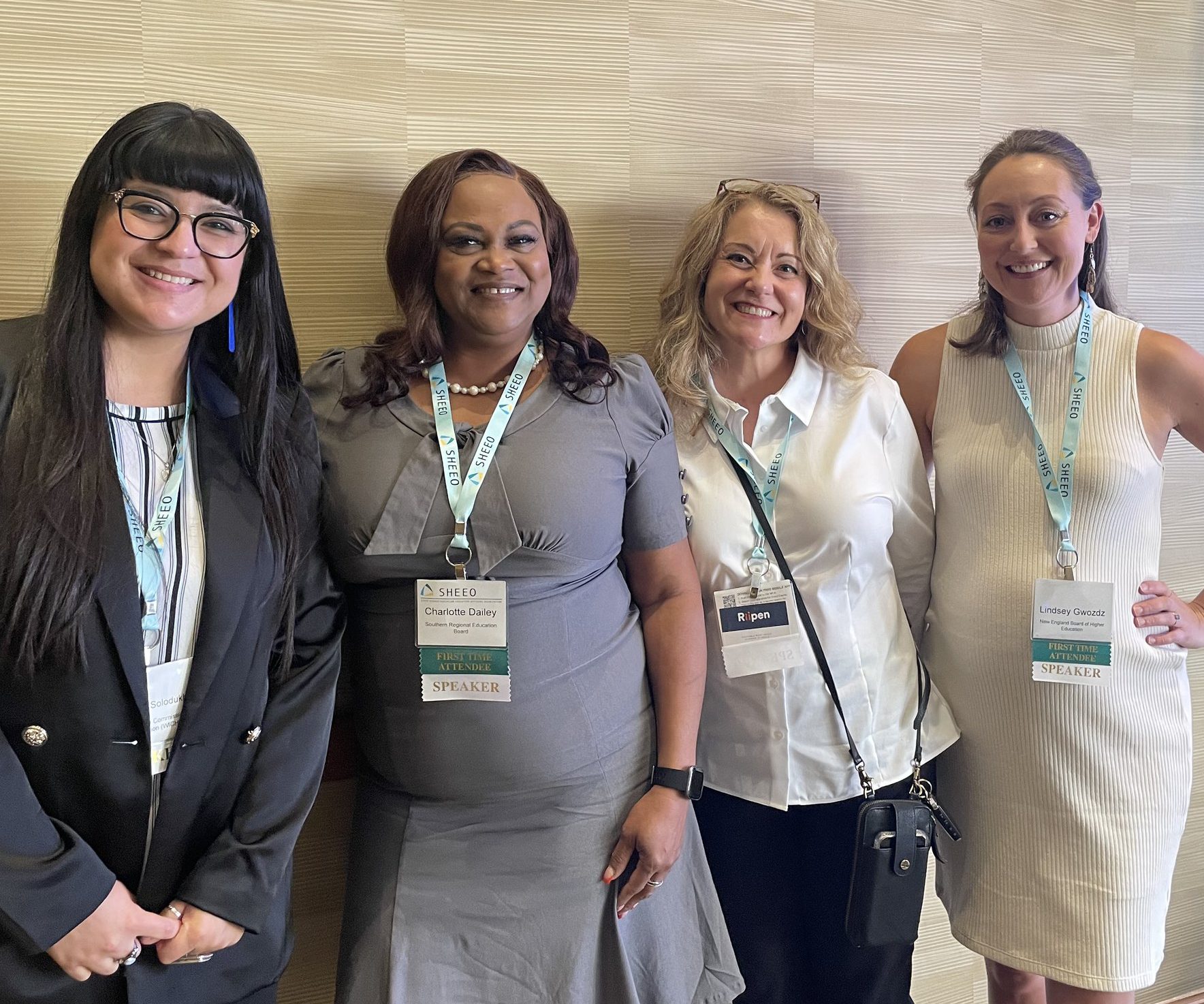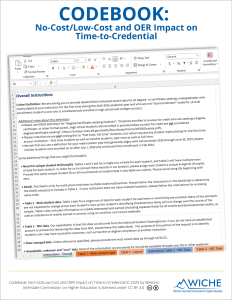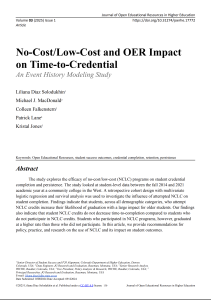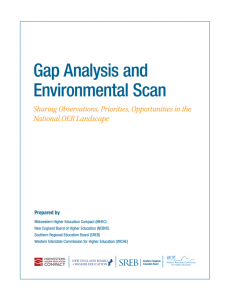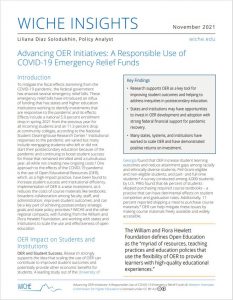The four regional education compacts are collaborating to scale and sustain the use of open educational resources, which are high-quality teaching and learning materials that are free for educators and students to use, customize and share.
Members of the four regional interstate higher education compacts presented at the 2023 SHEEO Conference. From left to right: Liliana Diaz Solodukhin (WICHE), Charlotte Dailey (SREB), Jenny Parks (MHEC), and Lindsey Gwozdz (NEBHE).
